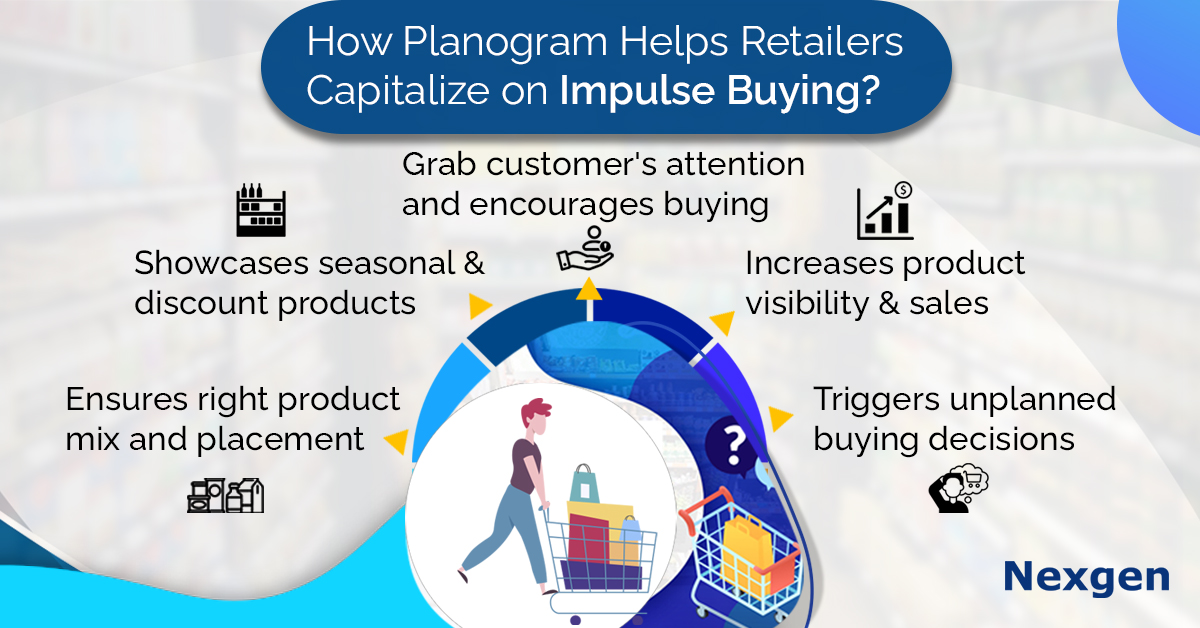In every retail store, encouraging customers to buy on impulse is a way to boost sales. In a study, it has been found that 75% of shoppers made three impulse purchases every week, which is not part of their shopping list. Thus, maximizing the potential for impulse buys in a retail store would be a true way to increase average in-store purchase value.
Why Impulse Buying Works?
Impulse buys are one of the proven tactics that all brick-and-mortar retailers implement in their retail store to improve sales. Today, most shoppers are likely to make impulse purchases of items that bring happiness and cheer them up or addictions or habits. For example, why have people developed the habit of drinking tea or coffee every morning? The stimulating effect of these drinks make people think that they are essentials for daily life. That is why most retailers capitalize on impulse purchases in their stores. A retailer can successfully encourage impulse purchases for their customers with the help of planogram software. Planogram is a visual merchandising tool, that helps the retailer in choosing the right products, putting them on the right shelf and helps in grabbing shopper’s attention. So, following are three retail store planogram factors that can boost the frequency and value of impulse buying in a retail store:
- Planogram ensures the right mix of product selection and product placement on retail shelves. This helps impulse buying and satisfy customer shopping habits.
- Showcasing seasonal and discount products on checkout counters or hot spot areas easily help to grab customer’s attention and encourages impulse buying.
- Placing discount labels and using bright and bold colors can draw customer attention and help create an urge in the customer’s mind to purchase such products.

What are the Products that can Trigger Impulse Purchases with the help of Planogram Software?
Brick-and-mortar retailers have more control over customer’s shopping experience compared to online sellers. That is why they influence customer's purchasing decisions by providing different products in their stores to improve sales. Some of the products that encourage impulse buying are as follows:
- Food and Groceries: One of the important components in day-to-day healthy diet of an individual is food. That is why food or grocery items are considered as one of the top-selling impulse items today. Most of the customers visiting grocery stores are influenced by product placement, store layout, and how assortment is displayed on each shelf. This can be done better with the planogram software, where products can receive 40% more eye-level attention and help impulse buying.
- Clothing and Apparel: According to a recent survey, 40% of shoppers wait when they visit a store to decide what brand or which category to purchase. It has been observed that the gender and attitude of a shopper drive influence on buying fashion apparel. That is why most of the brands are using shelf signage to introduce and create awareness about their products by placing discount labels or offers on them. Also, placing various brands of clothing on window displays can create an urge in the minds of people to give those products a try.
- Magazines and books: No matter what, a paper edition also entices customers to make impulse buys. It can be for study material, improving vocabulary, work, handicraft, recipes, limited edition of an author or clearance sales to trigger unplanned decisions. Retailers always aim to place the right books on the right shelves to increase visibility and sales to thereby increase impulse buying chances. This helps to increase the profitability of a store.
- Cosmetics: It is where customers make the best investments for themselves to take care of their skin. Shoppers spend a sum of money on impulse buying items just because of their brand. Placing top-brand cosmetics products on shelves improve the performance of the store with the help of impulse buys. It also results in, customers noticing other brand items.
- Jewelry: Even though jewelry is not on the list of essential necessities, it takes 55% of impulse buys in a store. These products are usually purchased because of any ceremony or just match with any dress. Jewelry can be stored on the countertop, by using the vertical space appealing to each display case. It includes product grouping and fixtures of different shapes, textures and color to place jewelry on a display case. Thus, planogram helps in impulse buying because of its product execution.
Overview of Nexgen POG
Nexgen POG?is a robust and user-friendly cloud-based visual merchandising tool. It is a cost-efficient planogramming tool, designed for creating store-specific planograms. Planograms help in visually merchandising different products with the right store layout, inventory management, report analysis, shelf placement and category management features. It helps increase product visibility and impulse buying.
Get Your Free Trial Now!